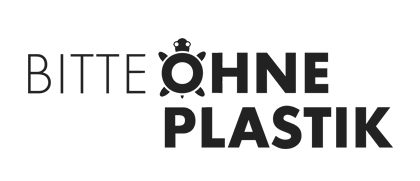Wie wird das Plastikproblem angegangen in anderen Teilen der Welt?
Kelvin Malunga and Sachi Shah berichten aus Malawi

Blantyre, Malawi – Not long ago, I was driving to Zomba, a small town with a lush mountainous plateau from Blantyre, the second largest city in Malawi. In the distance, I saw a field of beautiful colored flowers swaying in the wind. As I approached closer to the field, I realized the beautiful flowers were, in fact, thin plastic bags caught in small stubs in the ground.
Plastic waste is a growing and increasingly detrimental problem in Malawi. The production of the material releases toxic gases, and its inability to biodegrade causes it to clog productive land and water sources killing aquatic and ground life. This is particularly devastating for a country that is dependent on land for agriculture.
THE BAN AGAINST PLASTIC
Most plastic in Malawi comes in the form of packaging from imported goods, and there are also a handful of local companies that produce various plastic products of different grades. Since 2012, there have been various attempts to ban plastic under 60 microns of thickness, usually found in the form of thin polythene grocery bags. These are considered to be the most devastating plastic products on the market, globally.
The first and most notable attempt orchestrated by the Department of Environmental Affairs (DEA) at the Ministry of Natural Resources, Energy and Mining of Malawi to ban the production, importation, distribution and use of certain grades of plastic in the country such as plastic carrier bags, flat bags, alcohol sachet, among others, took place in December 2012. However, just a month later, this attempt was faced with vehement opposition from the Plastic Manufactures’ Association of Malawi (PMAM), which obtained a court order against the enforcement of the ban, citing insufficient notice and time to prepare for the ban.
Subsequently, attempts made by the government to ban plastic in 2013, 2014, 2015, 2016, and 2018 have been quashed by plastic industry lobbyists as, well. Bright Chatha, a resident of Blantyre recalls that the stories on the ban of thin plastics were like football and politics in the country. “It was apparent in the year 2015 that discussions among consumers included the ban of thin plastics. These frequent discussions on the ban were prompted by a number of retailers in the country who took initiatives to comply with the ban by stopping the provision of free plastic bags to their customers”
Mega supermarkets like Shoprite, Metro, Peoples begun selling the recommended 60+ micron plastics bags to their customers. Thin plastic was no longer seen in these shops. Although, thin plastic was still in use in informal market places. Speaking on the issue, Blantyre Metro wholesale store manager Dave Nyirenda said short while after the ban they could not provide the plastic bags for free anymore and consumers were finding it inconveniencing to be buying the shopping bags each time. “Since it was way too expensive to buy the recommended plastics from the manufacturers, it was essential for us as a firm to start selling them and stop free handouts of the plastics”, explained Nyirenda.
The shopping bags commonly called “jumbos” moved from free-of-charge to MWK40 each at the time. On the other hand, thin plastic was still available on the market months after they were outlawed. (with the persistence of a battle between the government and the manufactures on whose voice is heard more – thin plastic was still available in the local markets for sale.) This diminished the momentum the sort of “plastic consciousness movement” had been developing among consumers. “The number of plastic bags bought and used saw a reduction at this point, because the time they were provided for free, people abused them so much, that for even small products people used to demand a jumbo for it”, explained Elfasy Nyambo, Administrative manager of Shoprite Chichiri grocery stores. He noted that customers found it expensive to be buying plastic bags but it is still once in a blue moon that people reused their plastic bags when shopping.
In June of 2018, in anticipation of a judgement to revoke the previously instituted stay order placed on the ban in 2016, civil society organizations including Association of Environmental Journalists (AEJ), Polytechnic, Civil Society Organizations (CSOs) such as Wildlife and Environmental Society of Malawi (WESM), Malawi Environment Endowment Trust (MEET), Coordination Union for the Rehabilitation of the Environment (CURE), Churches Action in Relief and Development (CARD), Center for Environmental Policy and Advocacy (CEPA), Malawi Creation Care Network organized a “Green & Clean” march to raise awareness about the cause.
While the march itself was not well attended, and attracted mostly students, civil society organizations, and a few expats, the Deputy Mayor of the city, Joseph Makwinja, inaugurated the march with a few words of encouragement. Unfortunately, there still hasn’t been a verdict on the ban to date.
EFFORTS IN WASTE MANAGEMENT
While there are a handful of civil society organizations that are working on both policy and programming around waste management, Malawi fundamentally lacks effective waste management infrastructure. While there are landfills in every city in the country, they are not large enough to house the growing amount of waste that is being generate. Additionally, burying indiscriminate waste in the ground is not a sustainable solution nor is it eco-friendly. Government waste collection services are also only provided to certain factions of society; those in which the government sees a viable tax base or those that are able to pay a premium for the service. As a result, waste accumulates in the open spaces and water sources in the low-income townships and rural areas. Waste is also buried in backyard pits, or worse burned which leads to the emission of toxic gases and an increasing number respiratory infections among residents of these neighborhoods.

In Lilongwe, the capital city, there are a number of private operators that charge up to 10,000MKW (12 euros) for collecting waste. For Malawi, this is a hefty sum, and one that does not even guarantee that waste will be appropriately managed or recycled. The United Nations along with a number of development agencies and the Lilongwe City Council have been setting up “waste transfer stations” over the past few years in Lilongwe meant to facilitate entrepreneurial solutions to recycling and waste management. However, there are a number of issues that are hindering these transfer stations to perform at optimum levels, least of which is no central or streamlined management of these stations. Additionally, improper waste segregation at source, that is at the household level, is also a big reason why waste cannot be properly processed.
On a socio-cultural level, as Titani a grocery store owner in Chilomoni township in Blantyre, explains “plastics is a form economic showoff, and its vast availability on the market has fueled the belief that the reuse of plastic bags is an ‘out of fashion behavior’. It displays one’s economic disability and stinginess when they keep reusing the same plastic, and no one wants to look poor around here.”
In 2018 and early 2019, Blantyre City Council issued an edict that condemned litter, including a statement in July 2018 by the ministry of Natural Recourses, Energy and Mining in conjunction with the Ministry of Transport and Public works which advised transport operators such as minibuses, buses, trucks and other private vehicles to have trash bins within their vehicles, however there is no way to enforce this. People continue throw empty plastic bags on the streets and fling trash out of the windows of moving vehicles with impunity.
Nine out of the twelve I spoke to outside the Shopright supermarket believe that by the virtue of shopping in thick plastics they have solved the plastic problem; they disregard what happens after the few minute use of plastic is definitely pollution and only see the prospect of abiding by the law. In addition, some women I met at the shop explained how the use of plastic to light charcoal fire has contributed to the astronomical use of plastics in the homes. The process of setting fire for cooking which involves burning plastic and dipping the melting plastic on the charcoal to set the it on fire has made plastic among a basic need for the sustainability of a household as far as food is concerned.
Most recently, during the devastating cyclone Idai and preceding storm that hit Malawi this month, plastic waste brought in by the floods lodged in one of the main hydropower transponders that provides electricity to the country, and shut down the transformer for almost a week, rendering several areas without power for days.
What the country needs at this point to tackle the corrosive effects of plastic pollution is strictly enforced laws about the consumption and disposal of plastic, and more stringent environmental laws in general. Additionally, private, public, and civil society actors need to work in conjunction to increase public awareness about plastic pollution as well as develop Integrated Sustainable Waste Management (ISWM) and recycling infrastructure for the country and its growing population and consumer needs. There have been rumors of plastic for energy coming into the country in a few years from now, and one company, Truss Group, has sought out to develop waste management infrastructure for low-income townships.
Kelvin Malunga is student of Education Science at the university of Malawi, Chancellor college. In his free time, he enjoys writing poetry and views on social issues affecting his country. Kelvin is an intern with Truss Group.
Sachi Shah is the founder of Truss Group, a company that works towards mitigating issues at the intersection of human and environmental health, currently working on developing waste management and plastic recycling infrastructure in Malawi.


Interesting read.
Indeed plastic disposal is a long term disease in Malawi. It is also rooted in the mindset of the people themselves.
One day I was in a bus from Zomba to Lilongwe for my mid semester break. There were at least 13 of us in that bus. The driver bought chips in a small blue plastic bag and of course a plastic bottle of Fanta to soothe his throat. Next to him was a guy who bought chips and chicken in a lunch box. Two or three at the back with me bought ground nuts in a small blue plastic bag. And two ladies bought tangerines.
Luckily after eating all that, they took the plastics and boxes and put them in their bags to throw them in the bin later. That’s what I thought would happen. But No! I swear, all those plastics ended up on the road. As the bus was on the move, one would simply open the window, dispose of the plastic, rub the hands, swipe the moth clean and close it with satisfaction. Just like that!
It was shocking. I must confess, I said nothing. Despite that I was the youngest in that bus, my cowardance levels are just in the clouds.
I therefore think that as much as manufacturers are to blame, so are the people too. We must change our ways on how we dispose of these small plastics we buy fast foods in. Buses can have bins otherwise, Malawi’s will still be a field of beautiful colored flowers swaying in the wind.